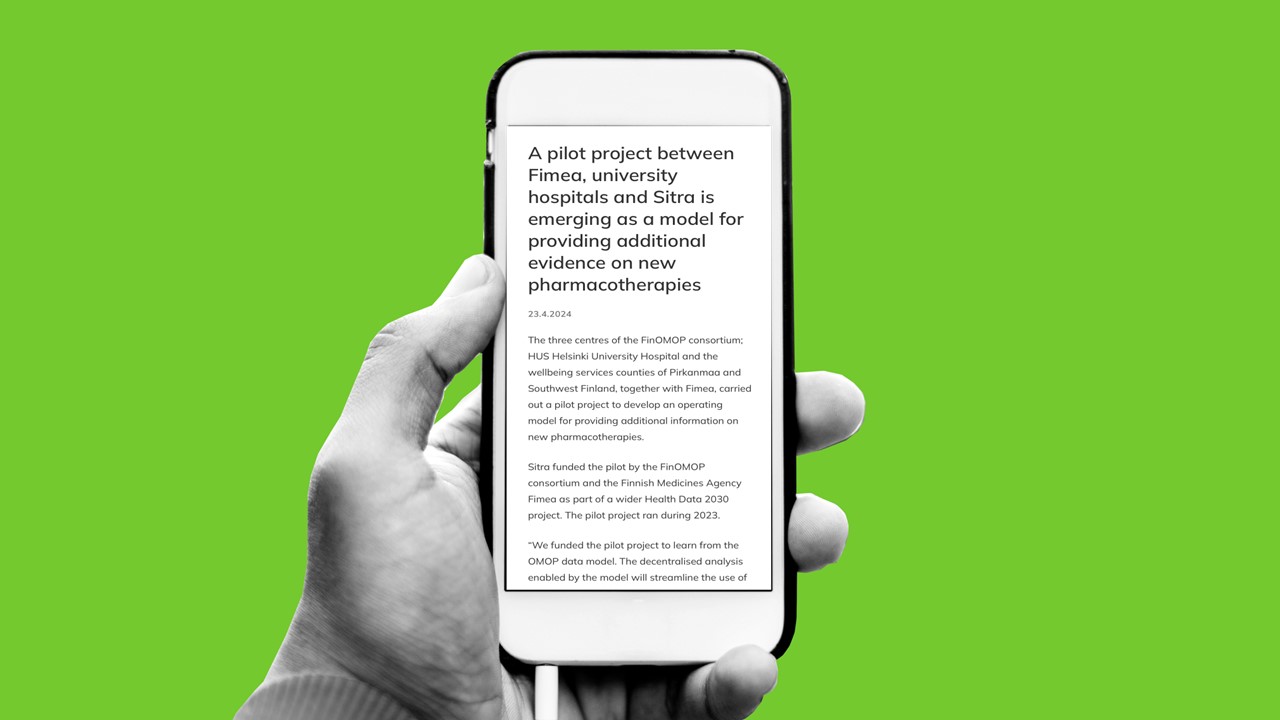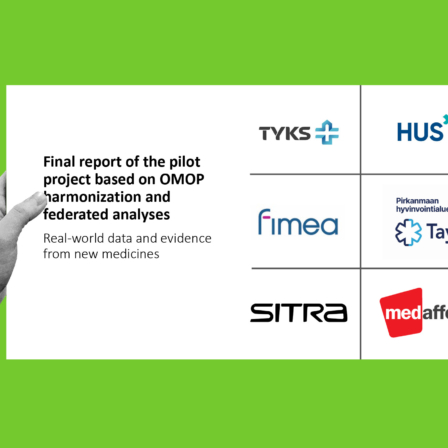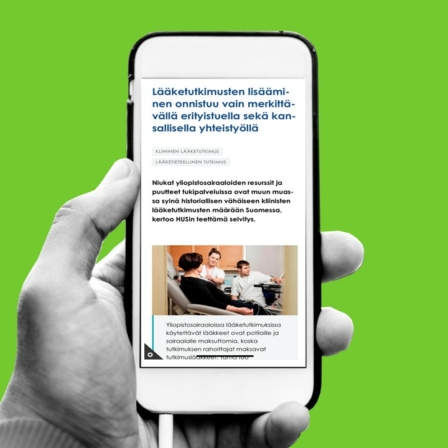The patient registers of the Finland’s wellbeing services counties contain a lot of valuable data needed for the controlled introduction of new medicines and for optimising their use. There is often a need for disease-specific or patient group-specific follow-up data. Currently, the widespread use of patient data is limited by issues such as lack of accessibility, reusability, quality, timeliness and cost.
HUS Helsinki University Hospital and the wellbeing services counties of Pirkanmaa and Southwest Finland, together with the Finnish Medicines Agency (Fimea), conducted a pilot project to develop an operational model for augmenting information on new drug treatments.
For the first time, the pilot project used Observational Medical Outcomes Partnership (OMOP) databases from three university hospitals and a decentralised approach based on analyses carried out in different organisations, such as hospitals and health and well-being regions. OMOP is an international vocabulary and data model developed for secondary uses of patient data, such as research, that allows patient data from different actors and even from different countries to be compared.
“The project has taught us valuable lessons about the OMOP data model and the new operating model and development needs required to use it. Research and innovation will flow more smoothly when up-to-date, high-quality data is made available securely and seamlessly,” says Saara Malkamäki, Specialist at Sitra.
Databases based on the same data model will allow identical analyses to be carried out locally in the OMOP centres in the well-being services counties, without the need to combine personal data between the centres. The anonymised data will later be aggregated between centres and reported centrally. A decentralised analysis model with uniform data will strengthen the security of patient data and speed up and improve the quality of data extractions.
“The pilot project showed us the potential of OMOP databases and the importance of interaction between organisations, and also what the main development needs would be from the point of view of our data needs,” says Vesa Kiviniemi, Head of Assessment at Fimea’s Health Technology Assessment unit.
The detailed results are summarised in the report and a summary in Fimea’s web news (23 April 2024).
In 2023, Sitra funded a pilot project by the FinOMOP consortium and the Finnish Medicines Agency Fimea as part of the wider Health data 2030 project, which has now been completed.



